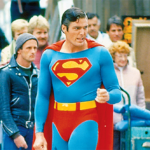 Mysteries
Mysteries  Mysteries
Mysteries  History
History 10 Surprising Stories About the Texas Rangers
 Humans
Humans 10 Philosophers Who Were Driven Mad by Their Own Theories
 Miscellaneous
Miscellaneous 10 Video-Game-Worthy Weapons and Armors from History
 Weird Stuff
Weird Stuff 10 Psychics Who Accurately Predicted Wartime Events
 The Arts
The Arts 10 Pieces of Art Inspired by a Broken Heart
 Health
Health 10 Science Fiction-Sounding New Medical Treatments
 History
History 10 Surprising Facts About the Father of Submarine Warfare
 Space
Space Ten Astonishing New Insights into Alien Worlds
 Weird Stuff
Weird Stuff 10 Bizarre Summer Solstice Rituals Still Practiced Today
 Mysteries
Mysteries Top 10 Haunting Facts About the Ghost Ship MV Alta
 History
History 10 Surprising Stories About the Texas Rangers
 Humans
Humans 10 Philosophers Who Were Driven Mad by Their Own Theories
Who's Behind Listverse?

Jamie Frater
Head Editor
Jamie founded Listverse due to an insatiable desire to share fascinating, obscure, and bizarre facts. He has been a guest speaker on numerous national radio and television stations and is a five time published author.
More About Us Miscellaneous
Miscellaneous 10 Video-Game-Worthy Weapons and Armors from History
 Weird Stuff
Weird Stuff 10 Psychics Who Accurately Predicted Wartime Events
 The Arts
The Arts 10 Pieces of Art Inspired by a Broken Heart
 Health
Health 10 Science Fiction-Sounding New Medical Treatments
 History
History 10 Surprising Facts About the Father of Submarine Warfare
 Space
Space Ten Astonishing New Insights into Alien Worlds
 Weird Stuff
Weird Stuff 10 Bizarre Summer Solstice Rituals Still Practiced Today
Top 10 Greatest Songs To Never Hit Number One
The Hot 100 is not a meritocracy. If it was, then “The Monster Mash” would have just spent its 58th year at the top. Many of the most iconic songs ever recorded were denied the #1 position for comparably worse records. Immortal classics stalled at #2 behind forgettable one hit wonders, frivolous novelties, or just plain garbage. History has vindicated the following ten songs as transcendent. They just were not quite enough to prove it at the time.
Top 10 Most Notorious Metal Bands Ever
10 Queen’s “Bohemian Rhapsody”
Song that kept it off: Kris Kross’ “Jump”
The stranger thing might be that “Bohemian Rhapsody” nearly topped the charts seventeen years after its 1975 release. The cultural power of Queen’s operatic odyssey has never faded. It took a couple of headbanging doofuses to revitalize interest in the classic rock mainstay. An iconic scene in Wayne’s World features five friends jamming out to the gloriously theatrical “Galileo” breakdown. The movie’s popularity spurred the song to chart seven spots higher than it did decades earlier.
The top two in May of 1992 were as backwards as Kris Kross’ pants. Outside of their gimmick, Kris Kross were a couple of kids who lucked into an irrepressible hit. It is not fair to write Kris Kross off as flashes in the pan, but “Jump” remains their singular defining moment. More importantly, “Jump” launched Jermaine Dupri’s production career.
Compared to the short-lived fame of Kris Kross, “Bohemian Rhapsody” still remains omnipresent. Following the biopic that shares its name, “Bohemian Rhapsody” joined the exclusive list of songs that charted on the Billboard Hot 100 in three separate decades. It has quite the legacy. Still, the fact that Freddie Mercury’s signature tune lost to Kris Kross for eight continuous weeks is wiggida wiggida wiggida wack.[1]
9 Kelly Clarkson’s “Since U Been Gone”
Song that kept it off: 50 Cent’s “Candy Shop”
New York’s post-punk revival was all about grit. Indie upstarts in the early 2000’s retreated to the abrasive aesthetics of bygone eras to recapture something lost in a post 9/11 world. It is cosmically unjust that the people who shepherded this sound into the top ten were a prepackaged reality show diva and the Swedish mercenaries responsible for Britney Spears and the Backstreet Boys. In their defense, they absolutely nailed it.
Pop Svengali Max Martin felt “Maps” by the Yeah Yeah Yeahs was missing something. He was alone. “Maps” is among the most celebrated songs of the new millennium. Martin still thought the tender ode of devotion needed a more powerful chorus. That idea eventually morphed into the single, “Since U Been Gone.” Clarkson’s anthemic roar saved her from American Idol irrelevance and prefaced a new age of pop singers backed by guitars from Katy Perry to P!nk.
On the other hand, her main rival, 50 Cent’s “Candy Shop,” was already a fading relic during its nine-week perch. By 2005, braggadocio rap’s reign was declining. “Candy Shop’s” insipid wit and ham-fisted metaphors encapsulated exactly why the genre waned.[2]
8 The Ronettes’ “Be My Baby”
Song that kept it off: Jimmy Gilmer and the Fireballs’ “Sugar Shack”
Phil Spector is one of pop music’s worst villains. He should be remembered as an abusive demented murderer. Equally, he should be hailed for producing one of the purest bursts of euphoria ever put on record. History is funny like that.
Nowhere as bad as the monstrous Spector, Jimmy Gilmer and the Fireballs are responsible for another great injustice against the Ronettes. In the creative nadir between the explosive birth of rock and roll and the dawn of the British Invasion, goofy treacle like “Sugar Shack” could become the best-selling song of 1963. Among the lone geniuses climbing the charts, the Ronettes were the muses for Phil Spector’s innovative girl group sound. “Be My Baby’s” evocative opening heartbeat drum fill is the most overanalyzed 1963 recording outside of the Zapruder film. Conversely, “Sugar Shack’s” beat is a clumsy Hammond amble resembling a farting accordion. The Ronettes perfected the dizzying rush of new found love. It certain makes for a more compelling subject than a smarmy creep hitting on a woman at her job.[3]
7 The Kingsmen’s “Louie Louie”
Song that kept it off: The Singing Nun’s “Dominique”
Perhaps, the country needed a balm. Appropriately, the first #1 song in the wake of John F. Kennedy’s assassination was a simple ode to an earlier fallen Catholic leader. Few other justifications explain how the wholesome French ballad “Dominique” beat out one of the foundational chaotic texts in all of rock. Despite the fact that their sole hits could not be more sonically dissimilar, both The Kingsmen and The Singing Nun got into trouble with their respective governments.
The Kingsman’s formative garage rock stomper “Louie Louie” was so raucous that the FBI investigated its muddled vocals. Apparently not too busy dealing with the Kennedy assassination, federal officials spent two years listening to the amateurish cover to hear if the audio buried any questionable lines. They could have saved a lot of time just listening to the Richard Berry original. In the end, they determined that the lyrics were completely unintelligible. Embarrassingly, they never realized that drummer Lynn Easton shouts “f*ck” after flubbing his cue.
Sister Jeanne-Paule Marie Deckers’ track has a much sadder background. Belgian authorities hounded her for back taxes. They could not believe she never got any residuals from her global smash. Her label and convent scammed her out of a fortune. Decker was forced out of her convent. Following a crisis of faith, Decker started dating Annie Pécher. In 1985, the two long term partners intentionally overdosed on barbiturates and alcohol. A nearby note read, “We hope God will welcome us. He saw us suffer, so He should show clemency.”[4]
6 Marvin Gaye’s “What’s Going On”
Song that kept it off: Three Dog Night’s “Joy to the World”
Marvin Gaye had enough. Begrudgingly stuck in the sidelines, he resented not fighting like his brother stationed in Vietnam. He could still serve his country. Using his dissolving family as a microcosm for society at large, Gaye saw how violence divided the nation. His soul-searching call for unity resonated with a bit less people than a song about getting drunk with a bullfrog.
Three Dog Night’s brassy fluke “Joy to the World” is one of the dumbest novelties of all time. “What’s Going On” is such a tightly constructed standalone single that it still served as the title track of a cohesive elegy of an album. “Joy to the World” barely strings along inane non sequiturs into something with the passing semblance of verses. So consumed by Vietnam, Gaye was thrown into depression. The only time the simpleminded Three Dog Night mention the war, they immediately undercut it by saying that they just want to make sweet love. Hopefully, this refers to someone other than their amphibian friend Jeremiah.[5]
Top 10 Musicians Who Were Ahead Of Their Time
5 Gnarls Barkley’s “Crazy”
Song that kept it off: Fergie’s “London Bridge”
In 2006, two songs posed questions. Along with Gnarls Barkley collaborator Danger Mouse, Cee Lo Green contemplated whether he was crazy to think he could will his marriage back from the dead after his wife asked for a divorce. Even if he could rekindle the relationship, would it merely be a bleak visage of what it once was? Why even be a part of a marriage like that? Fergie simply wondered, “how come every time you come around [her] London, London Bridge wanna go down, like London, London, London?”
The ethereal haunt of “Crazy” could not compete with twin raunchy powerhouses, Nelly Furtado’s dynamically flirtatious “Promiscuous” and Fergie’s obnoxiously clunky “London Bridge.” Fergie succinctly describes “London Bridge” in its own opening two words. If one can ignore the incredibly cumbersome simile that some anatomical feature is comparable to either a historical English landmark or a children’s nursery rhyme, it still contains the woefully cringeworthy refrain of “me love you long time”. If only history repeated itself and “London Bridge” had fallen down.[6]
4 The Rolling Stones’ “19th Nervous Breakdown”
Song that kept it off: SSgt. Barry Sadler’s “The Ballad of the Green Berets”
During one of the most fruitful explosions in pop culture history, a plodding pretentious piece of pro-war propaganda was the bestselling single of 1966. The five weeks stay on the summit meant something assuredly better was blocked off.
In their own ways, “The Ballad of the Green Berets” and The Rolling Stones’ “19th Nervous Breakdown” are both reactionary records against disaffected youth. Their targets could not be more different. The Stones’ condemnation against spoiled elites is filled with venomous derision. Bill Wyman’s propulsive bass line elevates Mick Jagger’s mocking sneer into effigy of London’s Swinging Sixties. Barry Sadler’s take down is comparatively lifeless. The faux military drum roll is the closest thing to a pulse. It carries Sadler’s monotone story where a soldier dies and wishes his child joins the same organization responsible for his death. Stoic Sadler never questions the needlessly cruel conflict. He displays no emotion either way.
Barry Sadler did not have much success outside of pop music. The royalties off one song dried up pretty quickly. He moved to Nashville to revitalize his career. In 1978, he shot Lee Emerson Bailey, Marty Robbins’ and George Jones’ former manager, over a woman. Sadler claims that he saw a glint of metal in the unarmed Bailey’s hand. Sadler only served 28 days in prison for the lesser offense of voluntary manslaughter. Out of prison, Sadler moved to Guatemala to train Nicaraguan contras. Either accidentally by his own hand or in a robbery, Sadler was shot in the head. The resulting coma contributed to a fatal heart attack at 49. The Rolling Stones ended up doing pretty well for themselves.[7]
3 Dr. Dre featuring Snoop Dogg’s “Nuthin’ But A G Thang”
Song that kept it off: Snow’s “Informer”
Snow was not an imposter. He was a criminal living among Jamaican immigrants. Yet compared to the effortless swagger of Dr. Dre and Snoop Dogg, Snow seems desperate. Every choice sounds like a man floundering his credibility. Gangstas threatening to stab someone are a lot more believable when they call it anything other than “licky boom-boom down.”
Snoop Doggy Dogg and Dr. Dre were at the door, ready to make an entrance. Snow did not back on up. Snoop and Dre would have given the #1 slot some much needed legitimacy. The first batch of rappers to top the chart were an assortment of ridiculous wannabees, like Vanilla Ice and Marky Mark, or momentary highlights, like P.M. Dawn. With his Toronto born patois, Snow is firmly in the first category. Snoop and Dre are neither. They were pioneering artists trailblazing a whole new style of hip hop, G-funk. Instead, the public chose a Canadian putting on a fake accent bragging about being anally probe by a police officer.[8]
2 Sam Cooke’s “Chain Gang”
Song that kept it off: Larry Verne’s “Mr. Custer”
The only time Sam Cooke hit #1 it did not count. Cooke’s shimmery coo “You Send Me” peaked in an early forerunner of the Billboard charts, the Best Sellers in Stores. In 1958, Billboard consolidated their respective lists into the Hot 100. When it came time to properly ascend, he was blocked by one of the most repellent hits ever.
In theory, both “Chain Gang” and “Mr. Custer” describe historical minorities suffering. In practice, the differences are stark. Cooke empathizes with the plight of abused prisoners yearning to reconnect with loved ones. Verne idolizes a genocidal madman and treats those fighting his invasion as a punchline. “Chain Gang’s” beat is driven by inmates’ sledgehammers, turning their tortuous exploitation into a celebration of resilience in an intolerant justice system. Conversely, “Mr. Custer” destroys any momentum by interrupting the melody with yelped out racist caricatures of Native American war cries and spoken word sketches. For a week in 1960, the record buying public preferred a yokel belching out a southern twang over the angelic voice of one of the greatest soul artists of all time. American taste has always been inexplicable.[9]
1 Gerry Rafferty’s “Baker Street”
Song that kept it off: Andy Gibb’s “Shadow Dancing”
The most egregious block in chart history has nothing to do with the respective songs’ quality. Both “Baker Street” and “Shadow Dancing” have merits. They work as companion pieces for the same ennui. “Baker Street” wallows in bourbon-soaked dread. “Shadow Dancing” is cocaine propelled anxiety. Nor does it have anything to do with fatigue of Bee Gee’s cultural onslaught. In the height of disco, Barry Gibb was so prolific that his younger brother could turn his runoff into the biggest selling song of 1978. The problem with the “Baker Street’s” silver medal status is that its gold was stolen.
For six of “Shadow Dancing’s” seven-week run, “Baker Street” sat within striking distance. In one weeks, chart tabulators told America’s Top 40’s producers “Baker Street” finally broke through. Billboard chart director Bill Wardlow protested. Gibb’s managers threatened to remove him from a Billboard show if “Baker Street” knocked off “Shadow Dancing.” Host Casey Kasem re-recorded after Wardlow called. Even outside of the lyrics, “Baker Street” could not win.[10]
10 Rocking Facts About Bands From The Golden Age Of Music
About The Author: Nate Yungman’s favorite song is “Baker Street.” If you thought this article was a load of number two, then you can email comments or questions to [email protected]. If you thought it was the tops, you can read more things he’s written on listverse or follow him on Twitter, @NateYungman








